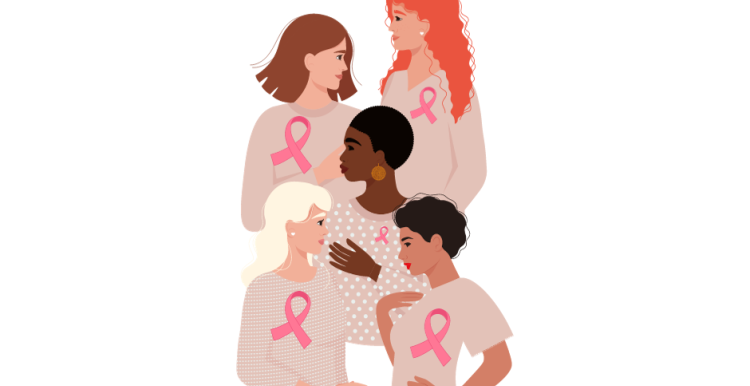A wedge approach to tackling health inequalities: Women’s Health

Earlier this year Healthwatch England published it’s position on Women’s Health. They outlined what they were calling for to improve and tackle health inequalities for women.
Included was this statement:
‘..we believe that tackling women’s health is not just about health issues specific to women, but about understanding the unequal distribution of wider health outcomes between men and women.’
The piece goes further to suggest that the Women’s Health Strategy for England (2022) is ‘very broad’. They call for greater clarity and an ‘implementation framework’, stating:
‘women’s experiences should be central to evaluating progress against the strategy at regular intervals’.
They called for a ‘greater focus on women’s experiences of feeling listened to by the health service’.
Working toward equality of women’s health, wellbeing and experience of social care
Healthwatch wanted to take a more structured approach to listening to your experiences of health inequalities in provision and access to social care and build its understanding of how wider determinants of health affect your wellbeing.
We have begun to take an approach we refer to as a ‘Wedge approach’ by taking an area where we have heard about inequalities, that also show up in national concerns. These are a mix of NHS England, through it’s Core20PLUS5, population health considerations such as those laid out by the King’s Fund work and also Healthwatch England. We will combine this with local strategic efforts that speak to the locally decided parts of the Core20PLUS5 as well as being influenced by what we hear from you as residents, both experiencing social care and attempting to maintain your wellbeing and as healthcare patients, inclusive of preventative.
The focus and topic of the wedge will change and won’t be exclusive to other regular or project based Healthwatch engagement or opportunities to be heard, but it will help us organise what we hear and direct our listening toward areas experiencing the most health inequalities so that we can contribute to initiatives like Turning the Tides and complement national work such as that called for by Healthwatch England.
To begin with we’ll be producing resources around various Women’s Health issues, often calling for responses to surveys to help us understand your experience and hear your stories.
In recent work we brought a focus to our insights around maternity. We have produced a resource to support the public as they navigate pregnancy and the care for children under five..
Women’s health hubs
Healthwatch has been supporting the work by the ICB to develop a bid submission for a women’s health hub.
Women’s health hubs bring together healthcare professionals and existing services to provide integrated women’s health services in the community, centred on meeting women’s needs across the life course. Hub models aim to improve access to and experiences of care, improve health outcomes for women, and reduce health inequalities.
In the months ahead we will share more on how the wedge approach has enabled us to share your experiences and shape an important form of provision for a group experiencing health inequalities. Our engagement work and the stories we hear during work around the Women’s Health Hub project will also allow us to shape the local Women’s Health strategy. Further related public engagement will be shared in the coming months.
Mental Health and Maternity
Earlier this year Healthwatch England shared the first phase of their findings around a mental health check policy within postnatal consultation that they directly contributed to making happen.
Following on from this work, NHS England published a three year maternity delivery plan, which set out improvements in line with several of our recommendations, including promised additional guidance for GPs on how to carry out six-week postnatal checks and commitments to commission the additional community perinatal mental health services promised in the Long Term Plan.
Mental health distress related to communication within health and social care services
Locally we are also working with Kent Medway Voice through their Mental Health Voice to build on the Communication review that they conducted earlier in the year around common experiences of communication across the mental health care system.
One area of the Communication review that is being advanced is insight around what was recognised as the ‘Getting to know you’ phase. The first point of contact with care, where we heard from service providers, that service users can experience distress at having to communicate their needs and prior circumstances as they move through multiple access points to their care plan. A brief best practice review was discussed and Health passports from other contexts were identified as a possible way to improve the experience. This suggestion was taken to the Kent and Medway NHS and Social Care Partnership Trust (KMPT) and their Engagement Council of service users and onward to a regular meeting with Senior members of the Trust to discuss potential ways to expand on the Communication review.
The Mental Health Passports were raised with East Kent Hospitals University NHS Foundation Trust (EKHUFT) who were particularly interested in maternal mental health. With patient voice insights from EKHUFT, and from regular Healthwatch sources, we will feed into Kent Medway Voice so that feedback can be gained, initially from service providers via the Local Mental Health Network sessions in September, as to how women with pre-existing mental health conditions might be helped by such a tool. We have agreed to report back to KMPT with our findings. More will be shared in October as to how EKHUFT utilise the insight to address maternal mental health to reduce health inequalities for women.
Dentistry and maternity
We have been working across Primary Care to help understand how you believe impacts of the national Recovery plan will affect you. Through our focus on Women’s Health we are listening particularly to the experience of women’s health around dentistry. Closing in early September a survey we helped shape was distributed by Primary Care to understand how pregnant women are experiencing dentistry, particularly if they are aware of exemption certificates and also if they have had their mental health effected by distress related to acquiring an appointment for themselves or linked to gaining an appointment for their child due to previous distressing experience. We will share on this in October as the results of the survey are analysed.


